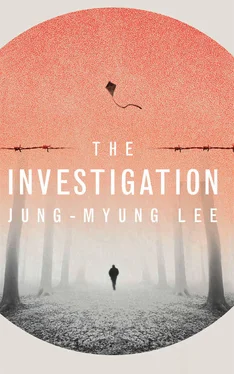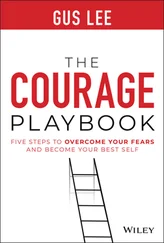The Kwantung Army marched through the hills at battalion strength. Instead of mobilizing the troops, the Japanese commander waited for the guerrillas to emerge on their own. A long confrontation ensued. The rugged geography was on the rebels’ side. The gang climbed over the cliffs and left the valley before the Kwantung Army reached the cave. Choi headed towards the Siberian Maritime Province with more than twenty men. They lived like wild creatures of the night, scaling mountains after dark and sleeping under leaves during the day. When they arrived at their destination, the gang had shrunken to fourteen; cold, hunger and beasts had reduced their ranks. Rumours about the fearsome band of thieves from Mukden preceded them to the Siberian Maritime Province, where they were organized under the command of the Russian Communists. That was where Choi encountered Marx’s ideas; Choi’s talent for fighting and dreams of destroying the Japs grew even fiercer. Six months later he’d turned into a loyal Communist. His unit attacked a Japanese ordnance corps and seized its train and assassinated a Kwantung Army general and commander; the Siberian Maritime Province soon became their territory. But it wasn’t enough for Choi; he knew he was fated for greatness. Wanting more intense battles with more enemies, he headed to Vladivostok. He sneaked into the belly of a ship, covered in the stench of disintegrating produce and fish, and disembarked in brightly lit Tokyo Bay three days later.
The Communist organization extended like a vine everywhere; in Tokyo it was centred on Korean students studying abroad, who had learned about Communism from books and didn’t know how to act on their rage. They stayed up all night memorizing manuals on fighting, but didn’t know how to apply their learning to the Japs. They agonized over their sterile ideology, debating useless theory hundreds of times. Choi blamed books for delaying revolution; in his mind, writing was a tool that allowed the powerful to oppress the weak for thousands of years. The rich incarcerated the poor using law books, loan sharks oppressed the poor with their ledgers, and officials had used the king’s directives to suck the people dry. He couldn’t wait for a book-free world. He attended a Korean student meeting in Tokyo and mocked them: ‘You so-called intellectuals have imprisoned yourselves behind letters,’ he announced. ‘You’re weak. You’re unable to take any action. That’s what the Japs want — to create bookworms who can’t act. You want to overthrow the Japs, but all you do is wriggle in the mud.’
Disgusted, Choi established his own Communist cell in the Tokyo area. Soon there was a spike in arson and attacks on officials, bankers and the heads of defence contractors. The Special Higher Police didn’t realize that they were the acts of a foreign Communist; they thought they were isolated instances of increased violence as society became unsettled. Three years after he arrived in Japan, Choi planned the best plot of his life, the one attack that would return the whole warped situation to normal. It was 29 April, the Emperor’s birthday. He would bomb the Emperor’s celebration at Ueno Park, attended by high-level army generals, the Interior Minister and others. His assistant was a Korean student named Kim Gwing-pil, who had been studying chemistry at Rikkyo University when he received his conscription notice. He’d been on the run since then. Kim, who wore round eye-glasses, looked every bit the intellectual. Choi asked if he could make a bomb. Kim assented, requesting a hideout in return. He stayed up all night, reading books about gunpowder and explosives that Choi procured for him. No matter what happened, he had to make a bomb by 28 April.
Two days before the big event Kim handed over two bombs he’d made over several sleepless nights. Choi promised to send him money and buy a passage to Manchuria after the bombing. But the bomb Choi lobbed into the crowd didn’t go off; he was arrested on the scene. The Special Higher Police caught up with Kim, who was wandering the Japanese islands without any escape funds. The prosecutor sought execution for Choi, but the Tokyo court sentenced him to life imprisonment. What they didn’t know was how tenacious Choi was in biding his time. Choi wasn’t angry at Kim. It wasn’t the man’s fault; it was the damn books he’d read. Inaccurate knowledge acted like a noose. If Kim was wrong, it was for the audacity of thinking he could change the world with a couple of books.
Choi’s glares intimidated even the guards. He reeked of the wild. He was poised to attack on a moment’s notice. Nobody knew what he would do next. When Sugiyama Dozan came to the prison fresh from Manchuria, Choi instinctively recognized his own untamed nature in the guard, and Sugiyama detected the Manchurian dust on Choi. The prison was a small, enclosed world and the two had to fight over this limited territory. Sugiyama called Choi into the interrogation room every few days. He had plenty of reasons — Choi had mumbled his answer to a question, he was late for assembly, he stared straight into the guard’s eyes. Sugiyama’s club would ram into Choi’s eyelid, crack open his forehead, break his teeth. With eyes swollen shut, Choi stared down the pain. He had only one weapon at his disposal — his endurance.
‘How would you like to die?’ Sugiyama would ask as he pressed his boot down on Choi’s neck.
Choi would grin, flashing his broken teeth. ‘I don’t want to die. If I die, I lose.’
Solitary confinement awaited him after each interrogation. It was as dark and quiet there as the inside of a coffin. Three days would pass. The cut near his eye would heal and the bruises would fade. Choi would go to the window, thinking he would suffocate from the stench. A weak wind blew through the ventilation window under the toilet. He would grip the bars as a wonderful scent wafted in — of life and hope, tender new shoots, overgrown spring grass, the scent of a young mountain bird’s feathers.
One day something occurred to him as he walked out of solitary into the blinding sun. It wasn’t enough simply to survive. He had to do something. First, he bulked up his weakened body. He began to do chin-ups on the bars of his cell and toned his muscles by doing squats and push-ups. When he was outside he walked around the yard to strengthen his shrunken heart. But his newfound focus only lasted a fortnight. He punched another prisoner and attacked a guard. What waited for him again was the smelly solitary cell. One week later he spat through his blood-crusted lips as he walked out of the cell. It was after this trip to solitary that he determined on new attempts at escape.
The first time he shoved the guard on duty and hurtled towards the wall. As he struggled to clamber up the high wall, a guard reached him and beat him. It was clumsy, an afterthought. It was too ridiculous even to call it an escape attempt, but the punishment was severe: ten days in solitary. The second time he volunteered for the night-shift work team and sneaked out of the workroom. He was caught climbing over the back wall of the prison. The warden was woken at home and rushed back to the prison. He viewed the entire incident as a challenge to his authority and personally interrogated Choi. Even a failed attempt deserved a summary conviction. But Choi wasn’t executed; his stay in solitary lengthened to a fortnight, then a month. The curious part was that while most people couldn’t make it out of their first solitary confinement alive, Choi walked out on his own two feet every time. Oddly, he tried to escape a third, fourth and fifth time, even though he hadn’t fully recovered his strength. His attempts kept evolving and were as entertaining as a well-choreographed play or an acrobatics show. The time he sneaked into a military truck loaded with bricks made by the prisoners, it seemed he’d made it, until the truck was stopped just before it drove out of the gates. He almost succeeded the time he crawled through a narrow, 300-metre-long sewer pipe, until he lost consciousness from poisonous gas with thirty metres to go. Soon he and the guards came to a silent agreement. When a fortnight passed after his last stint in solitary, the guards moved first. They sent him back under the guise that he’d violated some trivial rule, before he could do something more serious again. The guards could stop Choi’s violent behaviour and he could avoid the beatings. The solitary cell was occupied more often than not. So it was like clockwork; he and his gang went to and fro between Ward Three and the solitary cells like honeybees to a hive. Nobody thought twice about their trips, even though it happened at regular intervals. Until Sugiyama sniffed out the plot.
Читать дальше












